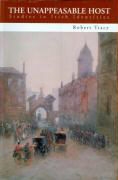Read more
This collection looks at some of the tensions created when Anglo-Irish writers reflected upon their preferred subject matter, Ireland and their unhyphenated Catholic contemporaries. Tracey shows how Anglo-Irish writers founded modern Irish literature in English, identifying themselves with their native country and its people. Yet they often felt themselves surrounded and watched by an "Unappeasable Host", a population that resented them.
Some of the topics and authors covered in the essays, more than half of which are new, include: the colonial novel, Edgeworth, the Banim Brothers, Roger O'Connor, Le Fanu, Yeats, Synge, Joyce, and Bowen. Robert Tracey, Professor of English and Celtic Studies at the University of California, Berkeley, has been a leading scholar in Irish studies for four decades.
List of contents
The cracked looking-glass of a servant - inventing the colonial novel; Maria Edgeworth and Lady Morgan - legality versus legitimacy; fiery shorthand - the Banim brothers at work; self-fashioning as pseudo-history - Roger O'Connor's "Chronicles of Eri"; Sheridan Le Fanu and the Unmentionable; that rooted man - Yeats, "John Sherman" and "Dhoya"; long division in the long schoolroom - among school children; intelligible on the Blasket Islands - Yeats's "King Oedipus", 1926; merging into art - "The Death of Cuchulain" and the death of Yeats; living in the margin - Synge in Aran; words of mouth - Joyce and the oral tradition; Mr Joker and Dr Hyde - Joyce's politic polyglot polygraphs; in the heart of the Theban necropolis - mummyscripts and mummiescrypts in "Finnegan's Wake"; the burning roof and tower - identity in Elizabeth Bowen's "The Last September"; Elizabeth Bowen - rebuilding the big house; a ghost of style; exorcising the Anglo-Irish past.
Summary
Irish writers who were considered Irish by the English, and English by the Irish are discussed here - including Maria Edgeworth, W.B. Yeats, J.M. Synge, Sheridan le Fanu, Elizabeth Bowen and James Joyce.

